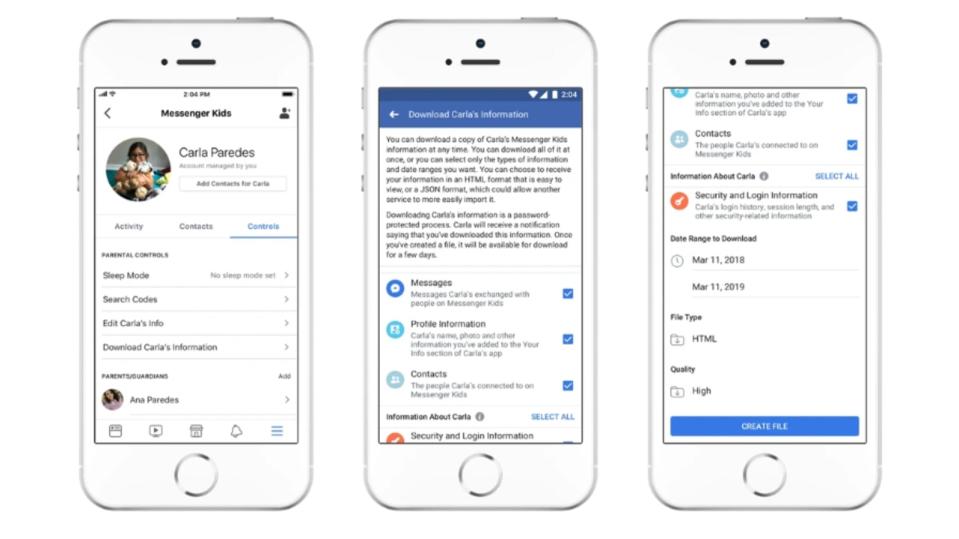Facebook gives parents more control over Messenger Kids chats
Parents can now see how their child is using the app.
Facebook launched its Messenger Kids app back in 2017, designed to get younger kids on board with digital literacy while giving them a safe space to connect and chat with their friends. It's seen a few security blips since, though, leading senators to question whether Facebook is doing enough to protect kids' privacy. Today, the company appears to have answered that call, as it rolls out a raft of new parental controls and safety features.
The new features are contained within the Parent Dashboard, giving parents the freedom to decide what is appropriate for their child, and how much of a close eye they want to keep on them. Parents can now view recent contacts and chat history, see photos and videos they've shared and received (and remove them from message threads), access a list of reporting and blocking actions undertaken by the child, and utilize a remote device logout feature (although this is not meant to control when kids have access to the app – that's what Sleep Mode is designed for).
Parents can now also download their child's information – similar to the way you can download your own information within the Facebook. This download includes a list of your kid's contacts, as well as all the messages, images and videos they have sent or received. Importantly, kids will be notified through the app when that information is requested, which sort of helps mitigate questions around invasion of privacy -- it'll be up to you as a parent to explain why you've requested that information, and how the subsequent conversation goes is in your hands.
Messenger Kids is an interesting part of Facebook's empire. With no advertising or in-app purchases there's no way for the company to make money directly from the app. But it's designed for the long game; children using Messenger Kids will go on to become teen and adult Facebook users, and that's where the revenue is. As such it's no surprise to see the company pouring resources into the app, particularly when it comes to appeasing parents and lawmakers (with which the company is already on shaky ground).


